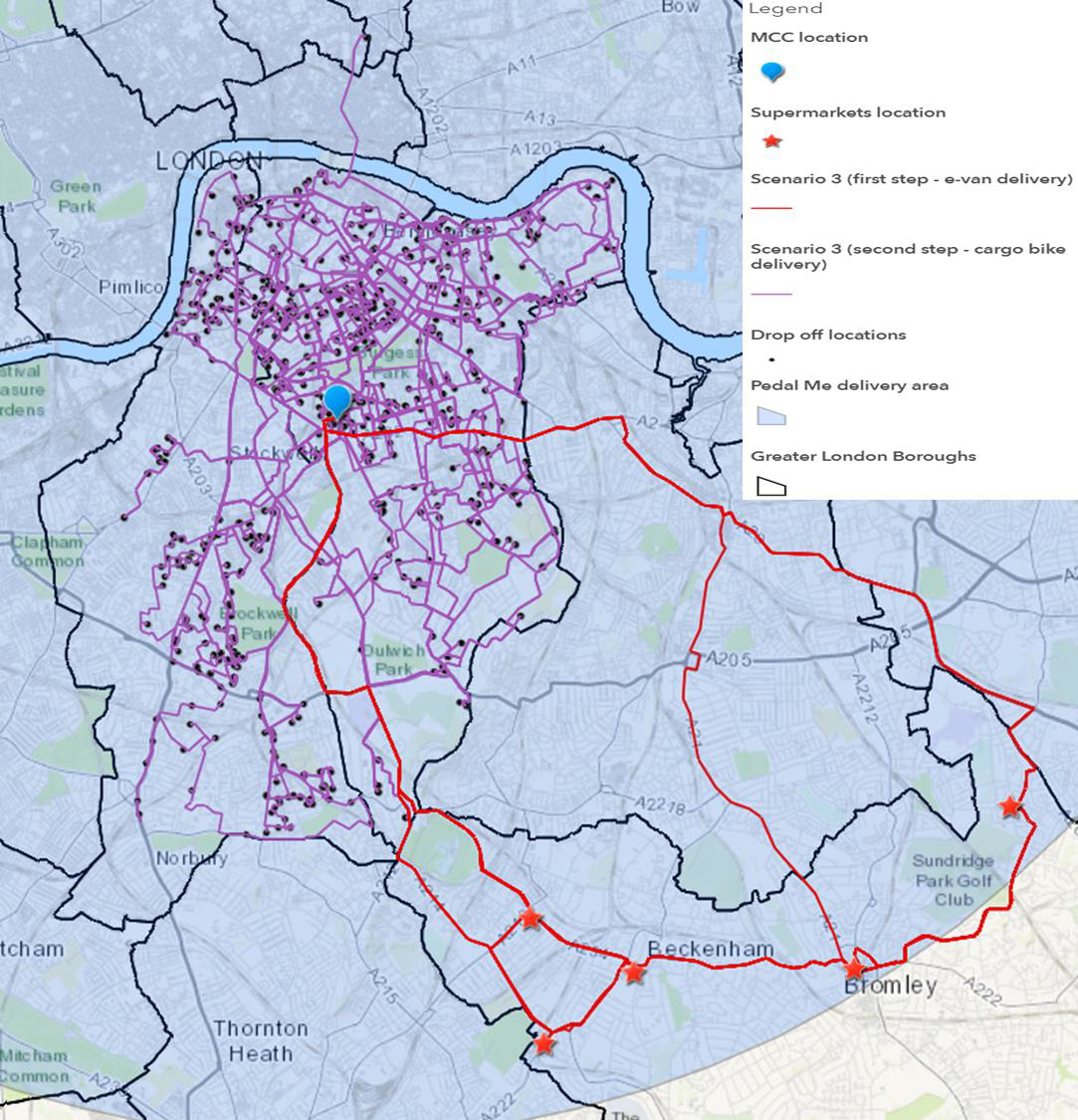Quantifying the Societal Impacts of Introducing Cargo Bikes and Micro-Consolidation Centres in Urban Last-Mile Logistics
This research evaluates the potential of using cargo bikes to replace diesel vans when the distance between the pick-up and delivery area is increased to the upper limit of the distance considered as the last mile ( up to 10 km/miles).
The study considers possible future operations of Pedal Me by creating a realistic case study that allows testing the performance of integrating a micro consolidation centre (MCC) with cargo bike deliveries. Using routes simulation, the study compares the performance of cargo bikes, diesel van and cargo bikes integration with a micro consolidation centre.
It was established that to deliver 86 jobs, cargo bikes saved around 5 hours and reach an average speed 1.65 times higher than diesel vans. Additionally, cargo bikes produce 5.2 times less CO2 and help save 317.56 g NOx and 87.23 g PM. Besides environmental benefits, the shift from vans to cargo bikes can also free public space and decrease congestion as they use nine times less space to deliver a parcel. It is also determined that integrating a micro consolidation centre can further improve cargo bikes operations when the e-van operates at full capacity ( i.e., multiple jobs in a day) or when the e-van operations are moved during the night.
The study is also put in the broader context provided by the literature and examined in comparison to other findings. It ends with a critical analysis of its limitations and some ideas for future research.










